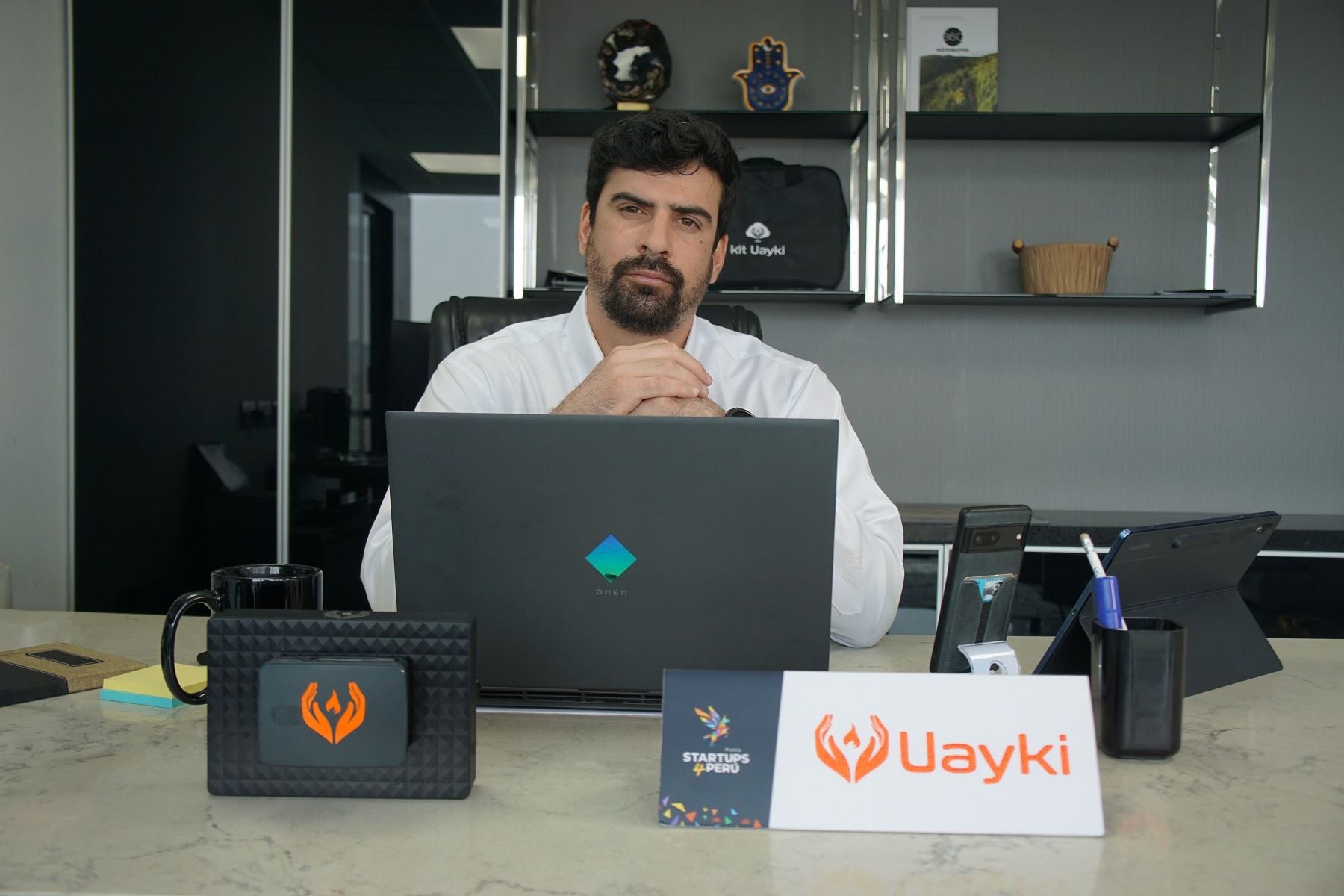Karim Rifai, a peruvian economist has introduced Uayki, an innovative wireless connectivity system that operates without the need for internet. The system provides users with access to a digital library containing over two million resources, including e-books, audiobooks, podcasts, videos, and certified courses, all accessible in areas with limited or no internet connectivity.
This breakthrough earned Rifai a spot on the prestigious MIT Technology Review's 2024 list of Innovators Under 35, a recognition for his work tackling the global issue of digital exclusion.
Uayki, which means "brother" or "friend" in Quechua, operates via a small, portable device that can run on solar power, making it ideal for rural and remote areas.
Once activated, Uayki generates a local network that covers an area of about a soccer field, allowing users to connect at high speeds with no data charges.
“We have a technology that involves both hardware and software. Uayki is a small kit that, once powered on, can even function on solar energy. It fits in the palm of your hand, is portable, and consumes minimal energy”, explains the tech entrepreneur.
“Once activated in a room, library, community center, or any location, even above 4,000 meters above sea level or in the heart of the Amazon, it creates a network with an area of coverage approximately the size of a soccer field, connecting users at high speeds so they can navigate without issues,” added.
Rifai also explained that the Uayki system is compatible with any Android or Apple phone, tablets, laptops, and even desktop computers up to 10 years old.
“Users can connect and navigate without limits, at no cost to them. With Uayki, you access more than eight platforms, each with a specific purpose: education, culture, communication, entertainment, and even commerce. It also provides platforms for downloading mobile apps and taking certification courses,” he points out.

The system also features an educational library that can be customized by schools to suit local needs, ensuring it supports regional educational goals. Uayki can be updated whenever there’s access to Wi-Fi, providing the latest content to its users.
The cost of implementing Uayki varies depending on the location but typically ranges from 5,000 to 7,000 dollars, with the system lasting up to 10 years. It’s a one-time investment that includes installation, training, and continuous technical support.
“It’s a one-time payment. We handle everything—from visiting the site, assessing the school or library, installation, training, and activation of the connectivity infrastructure. We ensure that all digital services and content are available. Then, we provide ongoing technical support, updates, and conduct follow-up through messages, virtual workshops, and regular reports,” explains the Peruvian innovator.
“This is a paid solution, but it’s much cheaper than getting internet service in rural areas. Plus, Uayki does not include content that could harm the user. Interestingly, 40 % of internet traffic consists of pornography, social media, online gambling, and violent or morbid content. The problem isn’t a lack of information, it’s that sometimes there’s too much, and it’s easier to find the bad than the good. We help users access resources to enhance their basic education, even in their native language, with courses focused on employability and entrepreneurship to improve their quality of life,” Rifai adds.
Currently, Uayki is operating in over 16 regions of Peru, as well as in Guatemala and Equatorial Guinea. Rifai plans to expand the system to Brazil, Argentina, and other countries in Africa and Latin America in the coming years.
"Our slogan is 'all connected,' and it’s also based on the idea that we don’t believe in borders. We want to help people, whether from Latin America, Africa, Asia, or any region with limited connectivity and access to opportunities. In the next five years, we aim to be present throughout Latin America, have a greater presence in Africa, and become leaders in this type of solution that has already benefited 30,000 to 50,000 people, both directly and indirectly," concludes Rifai.
Uayki is already making a tangible impact, providing access to critical educational resources for rural and isolated communities. With support from MIT and recognition as one of the most promising innovators in the region, Karim Rifai's solution is poised to change the way the world experiences connectivity.
More in Andina:
(END) MFA / MP / MDV
Published: 12/25/2024